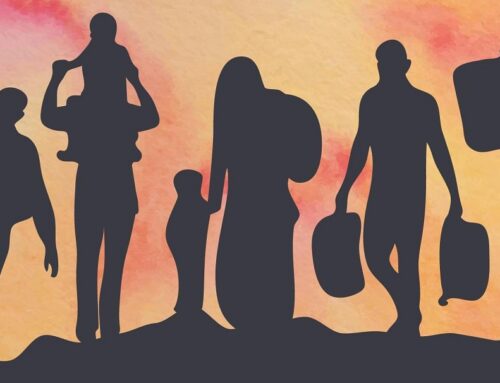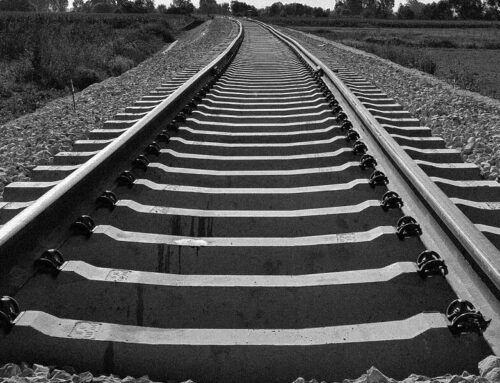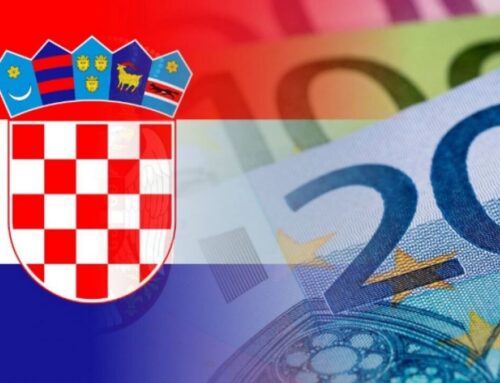Anastasiia Korotun
POLAND TO BUILD BELARUS BORDER FENCE AFTER MIGRANT INFLUX
Poland and its EU neighbours have reported an influx of migrants from Belarus in recent weeks. Poland has said it will build a fence on its border with Belarus to curb an influx of migrants it has accused the Belarusian government of driving. Poland and fellow EU states Lithuania and Latvia have seen sharp increases in migrants from the Middle East and Asia. They say many of the migrants are being flown into Belarus and being pushed across the border by authorities. The EU has accused Belarus of using migrants as a weapon in response to sanctions, which it denies. The sanctions were imposed in June over Belarusian President Alexander Lukashenko’s crackdown on protesters and the arrest of a dissident journalist on board a Ryanair flight that was forced to land in Minsk. On Monday the prime ministers of Poland, Lithuania, Latvia and Estonia called on the United Nations to intervene in a dispute with Belarus over migration. In a joint statement, the four countries said “the issue of abusing migrants” should be raised at the UN Security Council, an international peacekeeping body. Poland’s Defence Minister Mariusz Blaszczak later tweeted that a 2.5m-high (8.2ft) “solid fence” would be built along his country’s border with Belarus. Migrants are caught up in a stand-off between border guards from Poland and Belarus More than 900 soldiers are already assisting guards on Poland’s 400km (248 mile) frontier with Belarus. They have laid 150km of barbed wire coils on the border. Last week, the government said 1,935 people had tried to cross into Poland from Belarus so far this month. Of those, 1,175 have been sent back and 760 were sent to foreigner migrant centres in Poland. In the whole of 2020, 122 people crossed the border illegally and were detained. Poland, Latvia and Lithuania are all trying to block or push back migrants who attempt illegal crossings. This has led to stand-offs with Belarusian border guards. In one recent incident, Belarusian officers in riot gear were filmed apparently entering Lithuanian territory to push a group of migrants over the border. On the Poland-Belarus border, another stand-off has left a group of Afghan migrants stranded for days. Poland’s border guard says a group of 24 migrants is sandwiched between armed guards on both sides of the border. On Monday, Mr Lukashenko accused Poland of arranging a “border conflict” and violating Belarusian territory. Mr Lukashenko has repeatedly warned that Belarusian authorities will no longer stop illegal migrants from crossing into the territories of EU members. Meanwhile in Lithuania, the government said it would complete a 508km fence along its border with Belarus by September 2022. More than 4,100 mostly Iraqi migrants have entered Lithuania illegally from Belarus so far this year.
LITHUANIA WILL NEVER RECOGNIZE CRIMEA’S OCCUPATION, ANNEXATION – PRESIDENT
“Lithuania has never recognized and will not recognize the occupation and annexation of Crimea,” Lithuanian President Gitanas Nauseda said during the Crimean Platform’s inaugural meeting, according to the presidential press service. The platform is a diplomatic initiative launched by Ukraine to draw the attention of the international community to Russia’s illegal annexation of Crimea in 2014. According to Naseda, the international community must take a united stand on the occupation of Crimea and work to restore the territorial integrity of Ukraine in accordance with the principles of international law. The president underlined that Ukraine’s independence, sovereignty and territorial integrity were in the interest of the entire democratic world. The president noted that many challenges still lie ahead, but Ukraine’s future will be mostly shaped by domestic progress and change. According to the Lithuanian president, Ukraine is moving steadily forward on the path of European and transatlantic integration. He believes that the successful implementation of reforms will accelerate the integration process. Lithuania supports Ukraine’s efforts to strengthen state institutions, ensure the rule of law, fight corruption, and create a competitive economy based on free market principles. The Crimean Platform inaugural meeting in Kyiv, the capital of Ukraine, was attended by 44 national delegations, including the leaders of Lithuania, Estonia, Latvia, Poland, Slovenia, Finland and other countries, the president of the EU Council, and the NATO Deputy secretary general. The participants of the inaugural summit signed a joint declaration agreeing to continue the policy of non-recognition of annexation, demand an end to Russia’s occupation and empower international organizations to take more active action on Crimea issues.
MOLDOVAN PRESIDENT HAD A MEETING WITH THE EXECUTIVE VICE PRESIDENT OF EUROPEAN COMMISSION
President Maia Sandu had a meeting with Executive Vice President of the European Commission Valdis Dombrovskis in Kyiv on Aug 23. According to the Moldovan president, they discussed the allocation of 50 million euros – about one billion lei – from the package of macro-financial assistance, for which almost all conditions have been fulfilled. The only condition for getting this installment, where they do not have enough support, is the existence of a clear-cut strategy of recovery of the money from the bank fraud, which was to be elaborated by the prosecutor’s office. At the discussions, the head of state confirmed to the European Commission’s vice president the commitments taken by the new Moldovan governance of reforming the justice, eliminating corruption and strengthening the public institutions for re-establishing the Moldovan citizens’ trust in the country and in the improvement of their well-being.
GREECE TO IMPOSE STRICTER RESTRICTIONS ON UNVACCINATED CITIZENS
The Greek health minister Vassilis Kikilias announced on Tuesday that from next month, only people who are vaccinated or have recovered from COVID-19 will be able to enter hospitality, entertainment and sports venues. Depending on their jobs, unvaccinated workers will have to take up to two rapid tests per week, which will be priced at ten euros each. Employers will not be expected to cover the costs for the tests for unvaccinated personnel, while unvaccinated people will also not have access to rapid tests free of charge at public healthcare institutions anymore, and will need to go to private clinics. Earlier this month, a woman working in a care home became the first employee to be fired for not getting vaccinated against COVID-19 in Greece. According to her lawyer, who described his client as a vaccine “sceptic”, the 43-year-old woman complied with all health measures and, at the point when she was fired, obligatory vaccination for health personnel had still not come into effect. Obligatory vaccination for employees in care homes started on August 16. Employees need to show their employers proof of vaccination, and can be suspended, without salary, if they do not want to get vaccinated. A quarter of the workers in the care home sector have been suspended already, and only 45 to 65 percent of workers in the sector are estimated to have been vaccinated so far. The first court to hand down a judgment on the issue this month ruled against 19 employees in the care service in the municipality of Volos who wanted to continue their normal duties without being vaccinated. Greece ranks lower than the EU average on vaccination. After a promising start, the country has seen a decrease in daily jab rates. Health professionals have proved to be surprisingly sceptical about the vaccine in Greece, and the workers’ union has asked for the suspension of the obligatory vaccination rule. The Panhellenic Federation of Employees in Public Hospitals, POEDIN has announced that it will start a nationwide strike on Thursday, demanding the abolition of mandatory vaccinations against COVID-19.




